Would a TV trial be Trump's undoing? Maybe not | Matters of Fact
- Oops!Something went wrong.Please try again later.
- Oops!Something went wrong.Please try again later.
"Have you no sense of decency, sir?"
That's what a moment of truth sounds like. The moment when Sen. Joseph McCarthy, in the televised 1954 Army-McCarthy hearings, got his head handed to him. The moment the national fever called McCarthyism broke.
For eight years — and in growing desperation — critics of Donald Trump have been waiting for just such a moment. A single, decisive scene where the worm would turn, the bad guy would get his comeuppance, the emperor would at last appear in his birthday suit. Minus the oversize red tie.
It hasn't happened.
That, at bottom, could be the reason nearly 40 House Democrats recently signed a letter to the Judicial Conference to request that Donald Trump's trial be broadcast on live TV.
Transparency, yes. National interest, yes. But underlying it all, the forlorn hope that televised courtroom proceedings, as they did in the case of McCarthy and Nixon, will come to be Trump's undoing. Media created him. Perhaps media could destroy him.
Don't hold your breath, said Roy Peter Clark, a journalist and writing coach and the author of “Tell it Like it Is: a Guide to Clear and Honest Writing” (Little, Brown Spark, 2023).
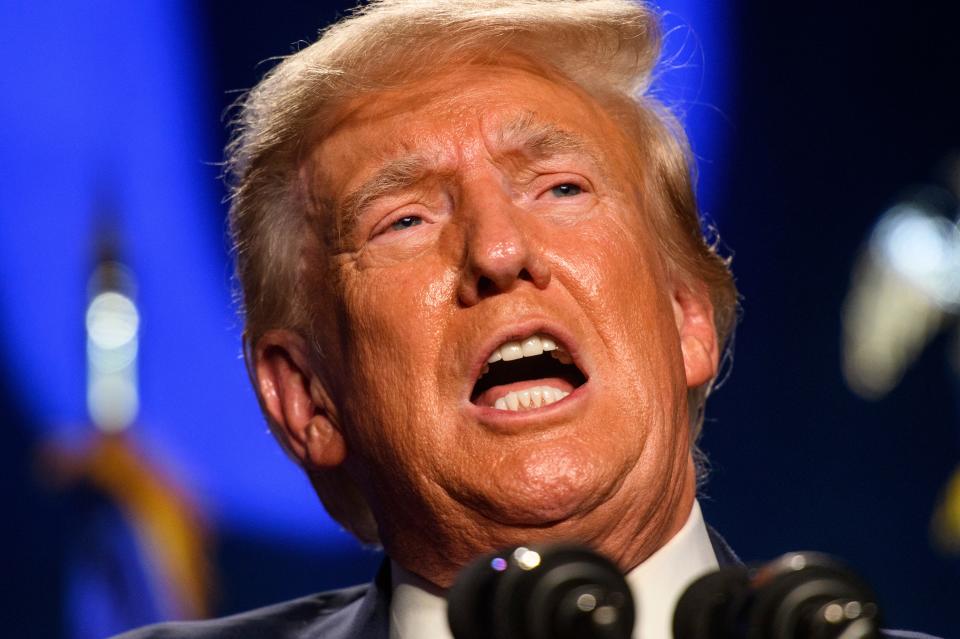
"I'm in favor of televising the trial, but I doubt it would be a come-to-Jesus moment for people wearing MAGA hats," said Clark, who has taught at Florida's nonprofit Poynter Institute for Media Studies.
"Nothing I've seen in recent American history suggests that people on the ends of the political spectrum are open, or even capable of being persuaded," Clark said.
Times, TV have changed
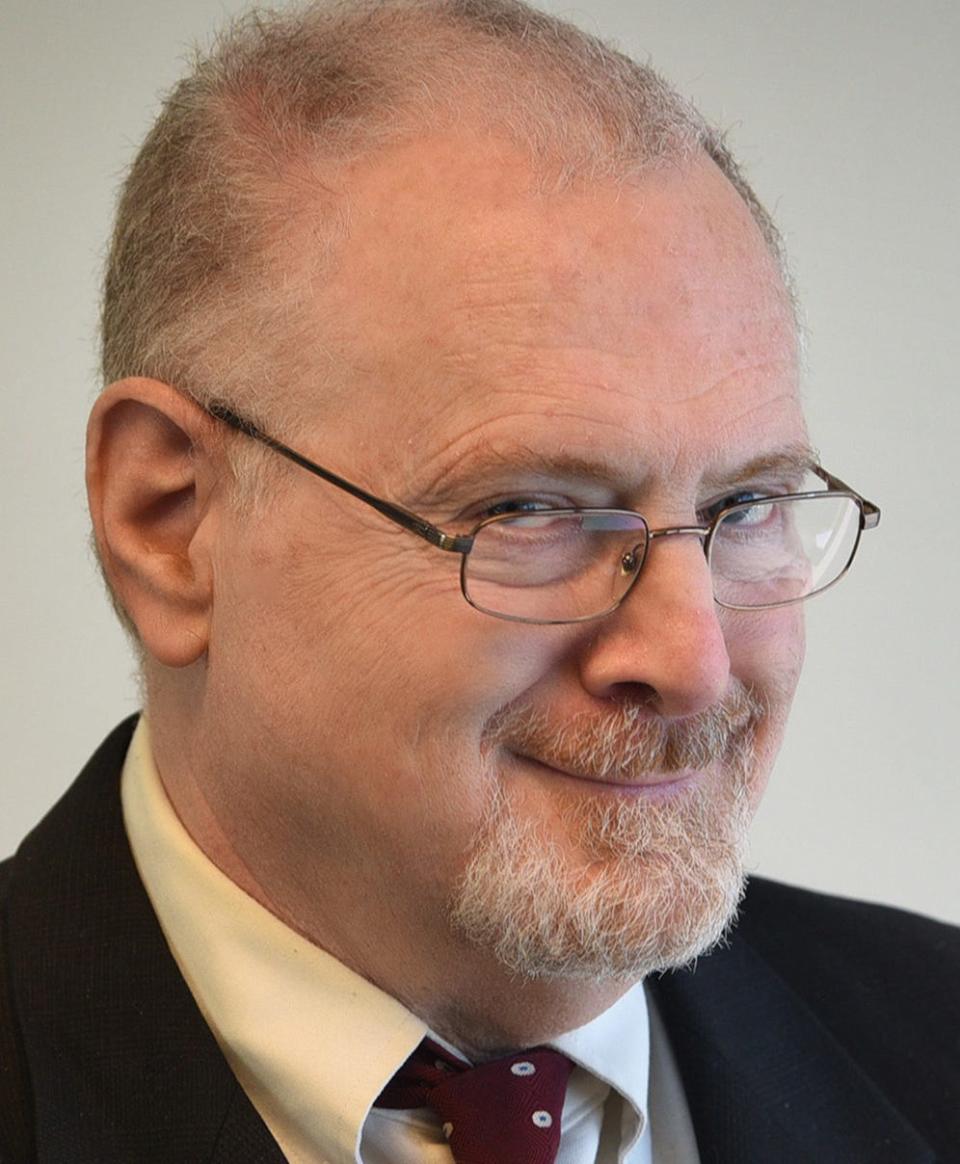
Matters of Fact | A column about our lives in the age of media
There are plenty of good reasons to televise such a trial.
But there's also reason to think that the country has changed, in fundamental ways, from the United States of the 1950s, when the McCarthy hearings aired, or the 1970s, when Watergate held the nation spellbound.
"Right now, there's a continuing fragmentation of the audience, multiple filters of experience," Clark said.
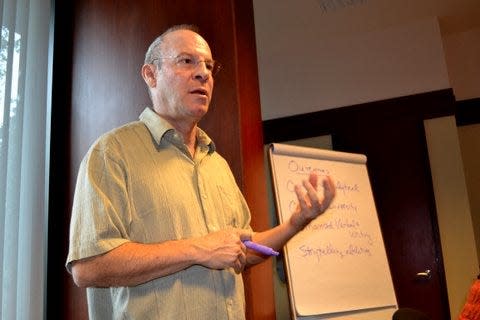
In 1954, there were just four TV networks. And 80 million people were watching over the 36 days that Sen. Joseph McCarthy bullied, badgered and red-baited members of the U.S. armed forces.
By the time Army Special Counsel Joseph N. Welch got to his famous peroration — "Have you no sense of decency, sir, at long last?" — the majority of viewers had decided. McCarthy was toast.
By 1973, there were only three networks (Dumont folded in 1956). Once again, 80 million Americans were glued to their sets — Sony Trinitron, by then — to watch all the president's men testify at the Watergate hearings.
They seemed an unsavory bunch. The evidence seemed damning. From May to November, people talked of nothing else. By the end of the hearings, 53% of the public had come to see Watergate as a serious issue — up from 22% before the broadcasts. Some 71% came to believe that Nixon was culpable. Including, crucially, key members of his own party.
Television, in both cases, created a national consensus — a single narrative, believed by a big enough majority to make a difference.
A single narrative is precisely what we don't have right now.
"Common sense, facts, reality, don't seem to make any difference," said Joe Chuman, a current leader of the Ethical Culture Society of New York and former leader of the Ethical Culture Society of Bergen County.
"We live in very fraught and crazy political times," said Chuman, a Hackensack resident. "This is a very dangerous moment in history."
Open and shut?
It would seem like a simple enough case. There are only two possibilities.
One: Diabolical Washington lawmakers, liberal media pundits and a vast network of radicals have joined in the biggest conspiracy in American history to smear a blameless former president with a mind-boggling 91 felony counts across four jurisdictions — all completely false.
Or two: An American president has attempted — with the tacit approval of most of his party — to subvert a fair election by multiple means including the creation of false slates of electors and inciting violence, in order to establish himself as, essentially, a dictator.
Either idea is appalling. And they can't both be true — any more than two solid objects can occupy the same space at once.
Surely an open, televised trial of at least the four federal charges, where the public could see the facts examined, and claims on both sides challenged, would gradually yield a consensus.
"Our best shot of trying to retain some element of rationality is to have a trial that is open and televised," Chuman said. Without cameras to document the events, each side would be free to spin its own version — on the hundreds of platforms that have now crowded out CBS, NBC and ABC, many of them with blatant political agendas.
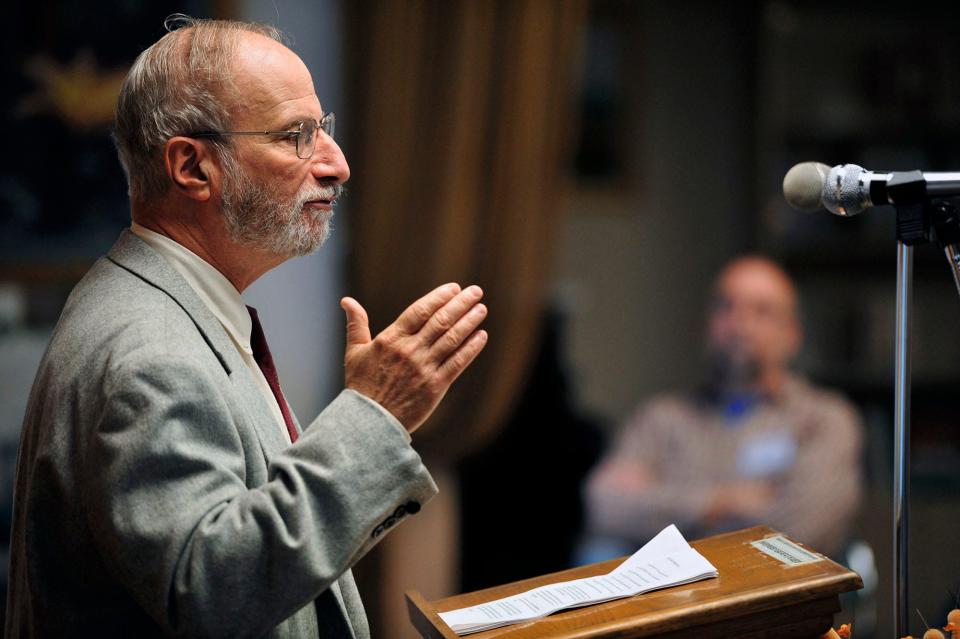
"My fear is that a secret trial would further inflame the idea that the other side has nefarious designs," Chuman said.
A different view
But is even an open trial, on television, enough? Maybe not.
Because there's another way to look at Trump — beyond the simple binary of guilty or not guilty. One that may actually be closer to the way many MAGA folks think. Against it, TV is powerless.
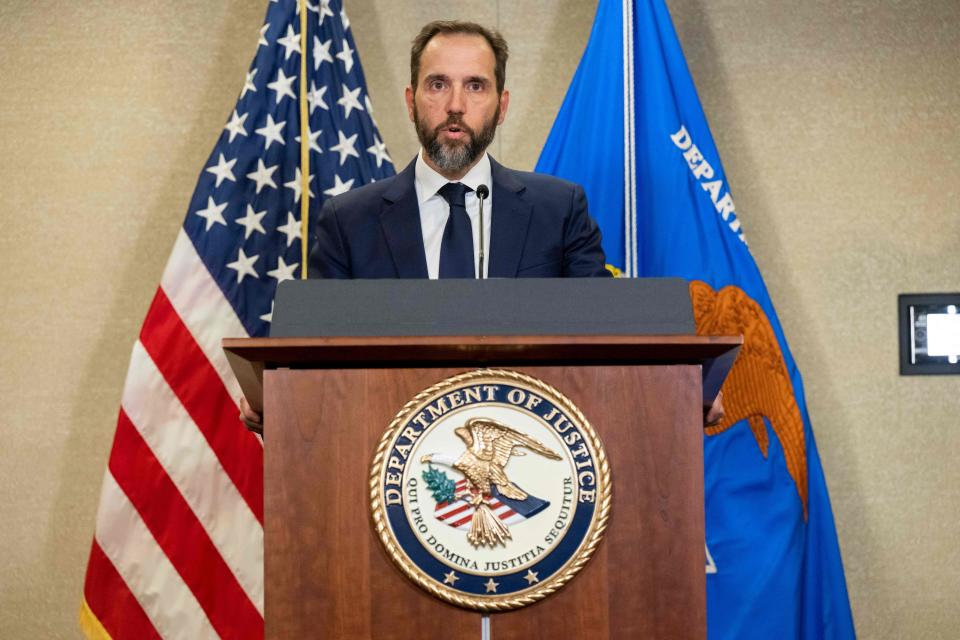
It goes something like this. Donald Trump is corrupt, OK. But they're all corrupt. Everyone is motivated only by self-interest. And the interests of radicals and the "woke" crowd are not our interests. So we'll stick to our grifter, and you stick to yours.
There's just enough truth there to muddy the waters.
Everyone is self-interested. True. But not to the same degree. A careerist is not a con man. A misdemeanor is not a high crime. Hunter Biden's laptop is not the attempted overthrow of an American election (if that's proved). "The difference makes a difference," Chuman said.
If "everyone's corrupt" is your argument, however, the actual guilt or innocence of Donald Trump, as determined in a TV trial or anywhere else, is beside the point. All the evidence in the world might not be enough to move the needle.
The real forerunner of the Trump trial might turn out to be not McCarthy or Nixon, but O.J. Simpson.
Here, 150 million TV viewers saw exactly the same evidence — and came to opposite conclusions. O.J.'s acquittal of murder divided the country in much the same way Trump is doing now.
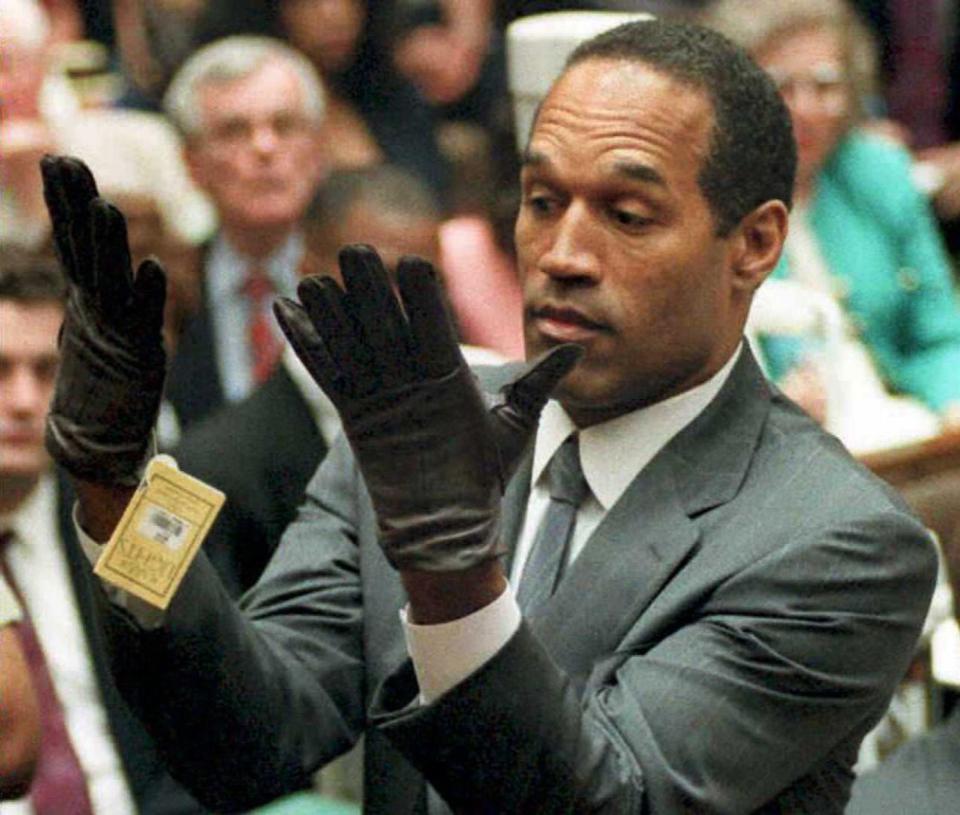
"I remember seeing a scene in which groups of people, white people, were shaking their heads," Clark said. "And in some Black audiences, there were scenes of celebration."
Through a different lens
How could two different groups see two such different realities?
Maybe because one was looking at the physical evidence: the matching gloves, the bloody shoe prints, the crime scene fibers.
The other was looking at police racism (documented, on tape), at their own experiences with judicial misconduct, at 400 years of lies about Black men assaulting white women.
For one group, O.J. was on trial. For the other group, American racism was on trial.
Who was to say the police didn't plant evidence? And what if one guilty Black man did get away with it — after all the innocent men, from Emmett Till to the Central Park Five, who were destroyed by that false accusation?
In a way, neither side was wrong.
"People are going to see what they see through the lens of their own experience and biases," Clark said.
So enjoy the big Trump show — if and when it's televised. But don't expect a big Perry Mason moment. And don't expect the country to come together, hands across the cultural divide, if the evidence proves No. 45 guilty.
Remember: TV is his medium. And this would be his biggest show yet.
"If your goal is to bring the country together down the road, to restore some of the norms that he turned into chaos, the way to go about that might not be to give him more TV time," Clark said.
This article originally appeared on NorthJersey.com: Donald Trump trial: Should it be televised?

